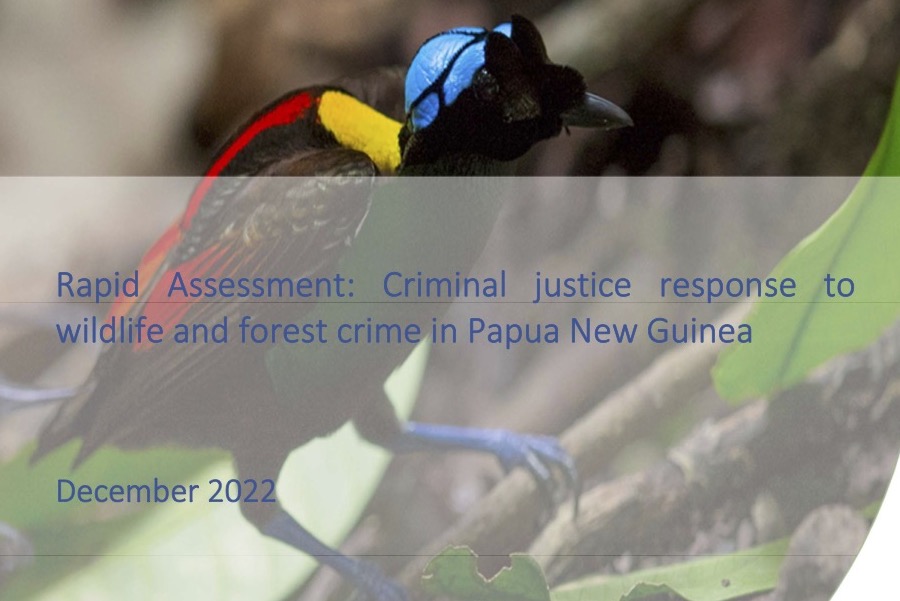
The timber industry in Papua New Guinea is beset with corruption, political interference, and widespread illegal practices across the sector, according to a report from the United Nations Office on Drugs and Crime.
Some of the most commonly reported illegal practices include logging licences issued or extended in breach of regulations, failure to obtain proper consent from traditional landowners, substantial breaches of harvesting regulations by logging operators, and the abuse of forest clearance permits for commercial agricultural projects.
The timber industry is also assessed as being a high-risk sector for money laundering, with illegal logging considered to be the second highest proceeds-generating offence in PNG after corruption.
The report finds that despite the scale of the problem, PNG is poorly equipped to deal with forest crime and the PNG Forest Authority 'has demonstrated little willingness to investigate and prosecute the criminality that allegedly plagues the sector'.
Although ‘forest crime issues are well known among the various government agencies, particularly the high risk of illegal logging’ there ‘is almost no oversight or enforcement on the ground, incidents are not recorded, and no data is available to indicate the scale or extent of these issues’.
No prosecutions
The report finds that ‘there have been no investigations and prosecutions of forest crime cases by government agencies, with severe resourcing challenges and low capacity for investigating complex cases to a standard that could be brought for prosecution’.
‘In addition, there are reports of systemic corruption, an absence of cooperation with police (which is dealing with its own serious, systemic issues), and a lack of coordination and information sharing between key government agencies’.
The report says illegal logging is a complex problem that requires a coordinated effort by PNG Forest Authority, police, revenue agencies, and the public prosecutor to pursue criminal prosecutions, imprisonment, and recovery of the proceeds of crime, as provided for in the legislation.
Penalties inadequate
The penalties available under the Forestry Act are not commensurate with the high value of timber resources, the vast profits generated from illegal logging activities, the very large scale of many foreign-owned logging operations in PNG, and the environmental damage caused when offences are committed. Furthermore, it was reported that there have been no successful prosecutions of illegal logging or other forestry crimes in the PNG court system.’
IRC applauded
Although the Internal Revenue Commission (IRC) has announced a crackdown on the logging industry, accusing it of entrenched tax evasion, transfer pricing and deceptive behaviour, this approach is not matched by other government agencies
The IRC is currently auditing 20 logging companies and expects to add more to the list as it scales up compliance activities, which could include criminal prosecutions. Its preliminary observations revealed that many logging companies have evaded corporate income tax for decades by continually claiming losses every year, despite exporting millions of cubic metres of timber, while also paying minuscule salary and wages taxes.
Police working for logging companies
The report finds that PNG does not have a tradition of strong local police authorities, and there have been reports of local police forces working with logging companies to provide “protection” in exchange for transport, accommodation, and allowances.
Various Police Commissioners have ordered police to withdraw from logging sites over the years, but it is reported that these practices continue to occur. In a recent case in January 2022, two landowners and a policeman were killed, and others injured, during a clash between landowners concerned with illegal logging and police who were allegedly privately engaged and used by the logging company against the landowners.
Recommendations
The report recommends various steps to build national capacities to tackle forest crime; these include strengthening interagency and international cooperation, addressing corruption and improving the legal framework. The report specifically recommends PNG should ‘recruit a group of international law enforcement and forestry compliance experts to undertake a review of the current PNGFA systems with the objective of identifying potential deficiencies, recommending current best practices and new systems, and provide advice and guidance to improve transparency and accountability'.
| Attachment | Size |
|---|---|
| 3.2 MB |
